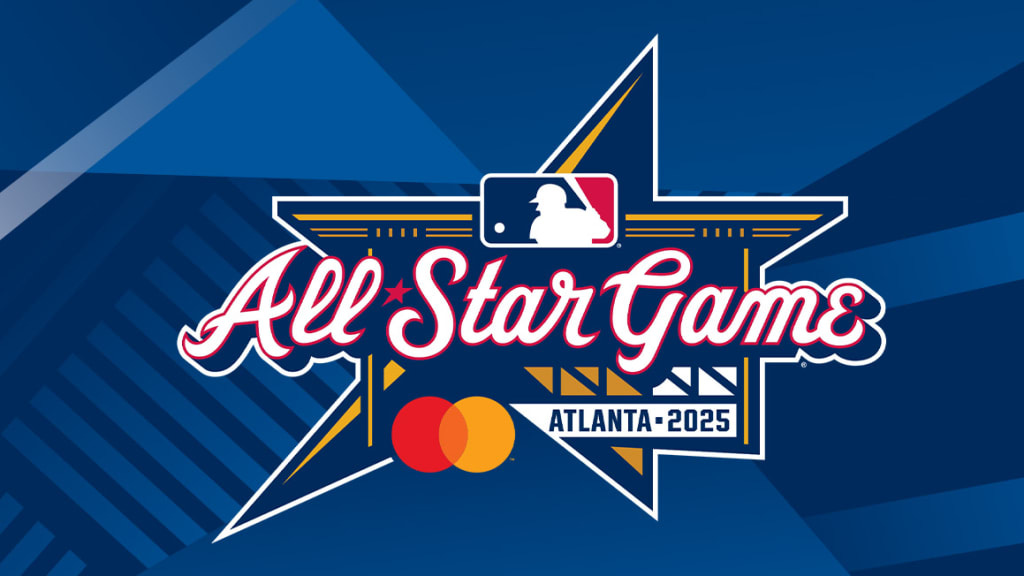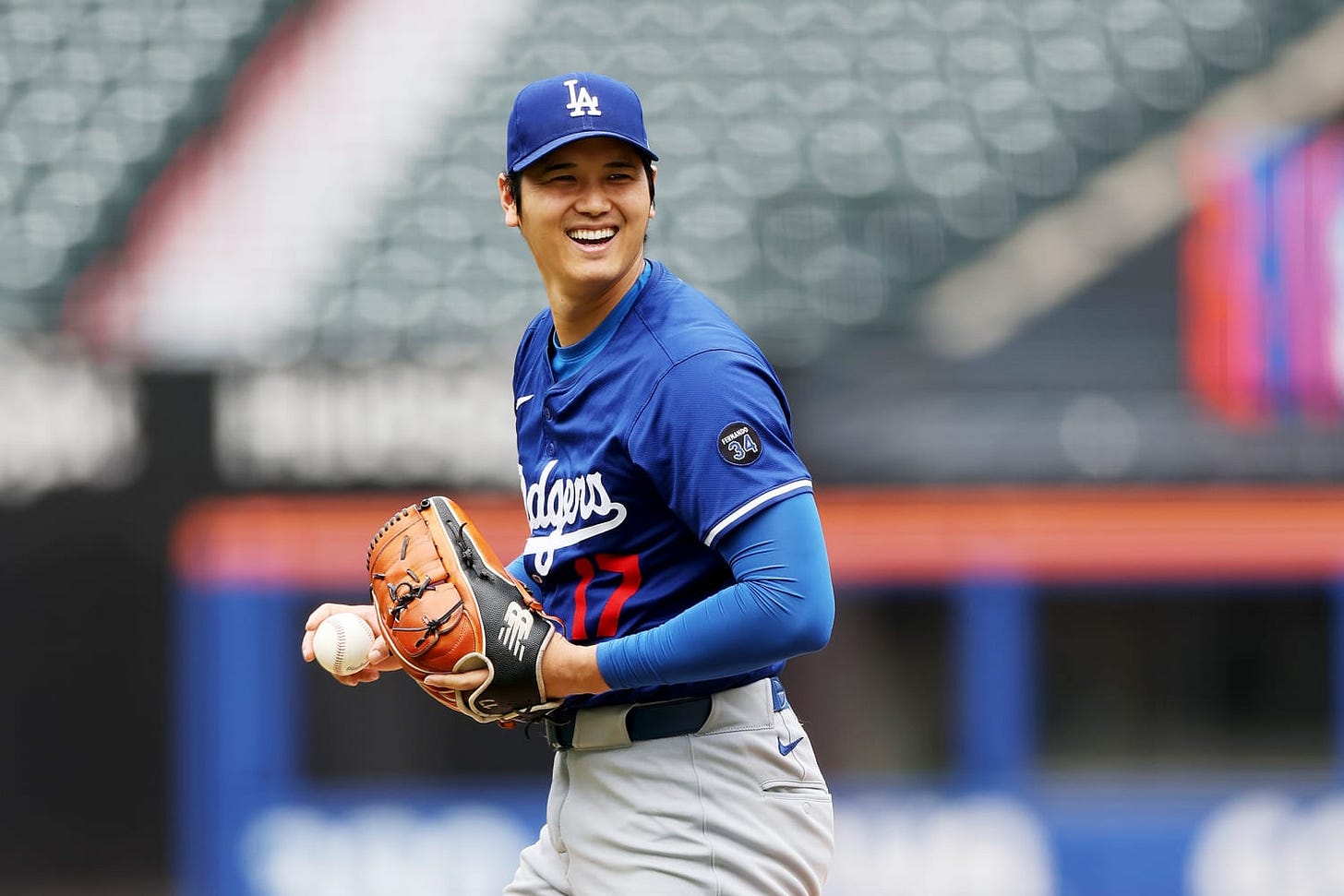Renegades | Uzma Rawn Dowler on MLB's All-Star Week
The Major League Baseball's CMO & SVP of Global Partnerships opens up about the game of failure, advice for starting a career in sports, and gives a sneak peek of this year's All-Star Week
Welcome to Renegades, Gold House’s editorial series spotlighting Asian Pacific leaders and creatives who are carving their own paths and defying stereotypes along the way. This week’s Renegade is the CMO of MLB Uzma Rawn Dowler!
Don’t miss All-Star Week, leading up to the All-Star Game on Tuesday, July 15th: view the full schedule, buy tickets, & make sure to tune in on FOX!
We ask all our Renegades: what did you want to be when you were growing up, and how does that compare to where you are now?
I always knew I wanted to be in sports in some capacity. I was an athlete growing up in high school and always loved being around a sports environment. After being a team manager for the men's basketball team while in high school and college, I realized there was this whole business world that exists within the sports world, and from there I had my North Star. What I do now is obviously different from where I started, but all my soft skills can still be attributed to the things I learned early on, as well as to how I was raised.
What drew you to a career in sports originally? You’ve worked in both basketball and baseball—how do the sports differ culturally and professionally from a marketing standpoint?
It’s unscripted and unpredictable. You experience all the emotions while watching a sporting event. Athletes have so much grit (unrelenting pursuit of greatness, being maniacal about your craft), and I think some of those traits translate over to being a successful executive in the sports industry as well. In terms of marketing basketball vs. baseball, first and foremost you’re trying to tap into fandom and a passion – the vehicle and medium in which we do that for baseball might differ from basketball, but ultimately, it’s about creating that feeling and igniting the passion in our fanbase, which basketball is looking to also do in their own right.
You’ve overseen some of MLB’s most iconic brand collaborations—can you share about a memorable brand collaboration? How did it come to be, and do you have any fun stories or learnings to share?
So many come to mind, but I’ll stick with the recent past and highlight a partnership we just completed with Warner Bros. and DC Studios around Superman. We partnered with the film around our tentpole MLB PLAY BALL Weekend, an initiative that aims to increase youth participation in diamond sports and is celebrating its 10th anniversary.
We viewed Superman as a property that spoke authentically to these efforts. Just as a parent passes down their glove and love of baseball to their child, they may also pass on their comic book collection or love of movies or an iconic character like Superman. These are two generational and iconic brands steeped in Americana while also reaching around the globe.
All-Star Week is one of MLB’s biggest cultural moments—how are you shaping the experience this year for fans and partners? In particular, how are you using All-Star Week as a platform to deepen engagements with younger, more diverse, audiences? What’s something that sets this year’s All-Star Week apart from previous years?
To start, every All-Star Week is unique, as we do our best to view the event through the lens of the host city. So much happens for fans before we even get to the Derby and Game themselves. Atlanta is exciting as it has such a deep and diverse culture, and I can’t wait to get on the ground to start our festivities this week.
We’ll connect with young and diverse fans through key events like Celebrity Softball, bringing cultural voices to the forefront with talent that resonate both locally and on the national level. Our fan experience at Capital One All-Star Village will lean into various cultural pillars, such as Food, Fashion, Gaming, Music, and Art, while giving anyone a chance to try and play forms of baseball, too. The intersection of baseball and culture will be on full display throughout the weekend with curated capsule collections being dropped, musical performances and entertainment, and celebrity appearances.
Our corporate and local partners will be active throughout the week, of course, whether that is Deer Park Water presenting our Red Carpet Show, Capital One at our All-Star Village, GEICO’S ownership of Celebrity Softball, or Budweiser and their “Hit The Buds” activation. Not to mention our presenting sponsors for Home Run Derby and the All-Star Game themselves—T-Mobile and Mastercard.
More info is at AllStarGame.com for anyone who wants to check it out.
MLB’s presence in Asia continues to expand. What are your takeaways from recent programming in Asia, particularly the Tokyo and Seoul Series? Are there new elements you’re hoping to bring into the fold through your Asia-based efforts?
Whenever we are playing games in an international market, we try to replicate the core U.S. game experience, especially for our regular season games, but we are also very thoughtful to localize elements of the game presentation to reflect the host market’s culture. In implementation, that can mean a K-Pop performance in Korea or [a] Pokémon [feature] in Japan. We also love the response we received in Tokyo when we collaborated with Takashi Murakami to drop an exclusive Cubs and Dodgers merchandise collection; that is a strategy we will continue to lean into – collaborating with local creatives to bring baseball to life globally and reflect the culture of the host market, while also maintaining the essence of the game.
Some of the most popular MLB players are Asian—how has their popularity grown the game both domestically and internationally?
Our current crop of Asian-born stars — led by Ohtani — has only helped widen our reach. It’s shown more people in more places that not only can they play our game and be a part of it, but they can also help drive and shape it.
Off the field, the influence of Asian culture is clear here in the U.S., and you’ve seen that reflected in our marketing efforts, with campaigns like our anime-inspired Heroes of the Game.
What’s one thing you’ve learned about baseball—and its fans—that surprised you most?
Baseball is a game of failure. That can be a tough notion for folks to wrap their head around, but it’s the beauty of our game. Baseball teaches you about life in that way.
Failing 7 out 10 times could land you in the Baseball Hall of Fame.
It’s the fact that our game is a game of failure that makes its successes so sweet and its victories so worth celebrating. You see that in our fandom. Fandoms — and all that comes with it, histories, wins, loses — are passed down through families and generations. With even the most tested fans and fanbases eternally hopeful that the next swing will be the one worth celebrating.
How has your own background shaped the way you think about inclusive storytelling in sports?
Baseball is a game that has something for everyone, and when we approach MLB storytelling, we do so with the mindset that different parts of the game attract different people; that's the beauty of it! We have recently been leaning heavily into campaigns that speak to Player Storytelling, because each Player's unique personalities and backgrounds are leading drivers into what attracts fans to our game across the globe. My family has lived across various parts of the globe, and baseball is something that is the same in every language!
What advice would you give to young women of color who aspire to leadership roles in sports?
I would loudly say "RAISE YOUR HAND” and do more than what is being asked of you. People only know what you tell them, and if you want to lead one day, TAKE opportunities to lead now, in whichever ways are on the table. Get involved in projects in meaningful ways doing the things you are already wonderful at, and then find ways to do them across whatever sports you have access to. That could be at your local Little League or your neighborhood community college. Actively look for ways in which you can get involved with the sports programs around you, and your world of opportunity will become immediately wider.
Lightning Round
Favorite Book: Essentialism by Greg McKeown
Morning Routine: Kiss the kids and my husband, and rush to the train so I don’t miss it. I moved to the suburbs recently; morning routine commuter life hits different
Last Movie You Watched: The Little Mermaid (I had my kids watch it because it’s my favorite Disney movie)
Dream Collaborator: LVMH – Louis Vuitton Fashion Collab
Comfort food: A spoonful of peanut butter (creamy, not crunchy)





